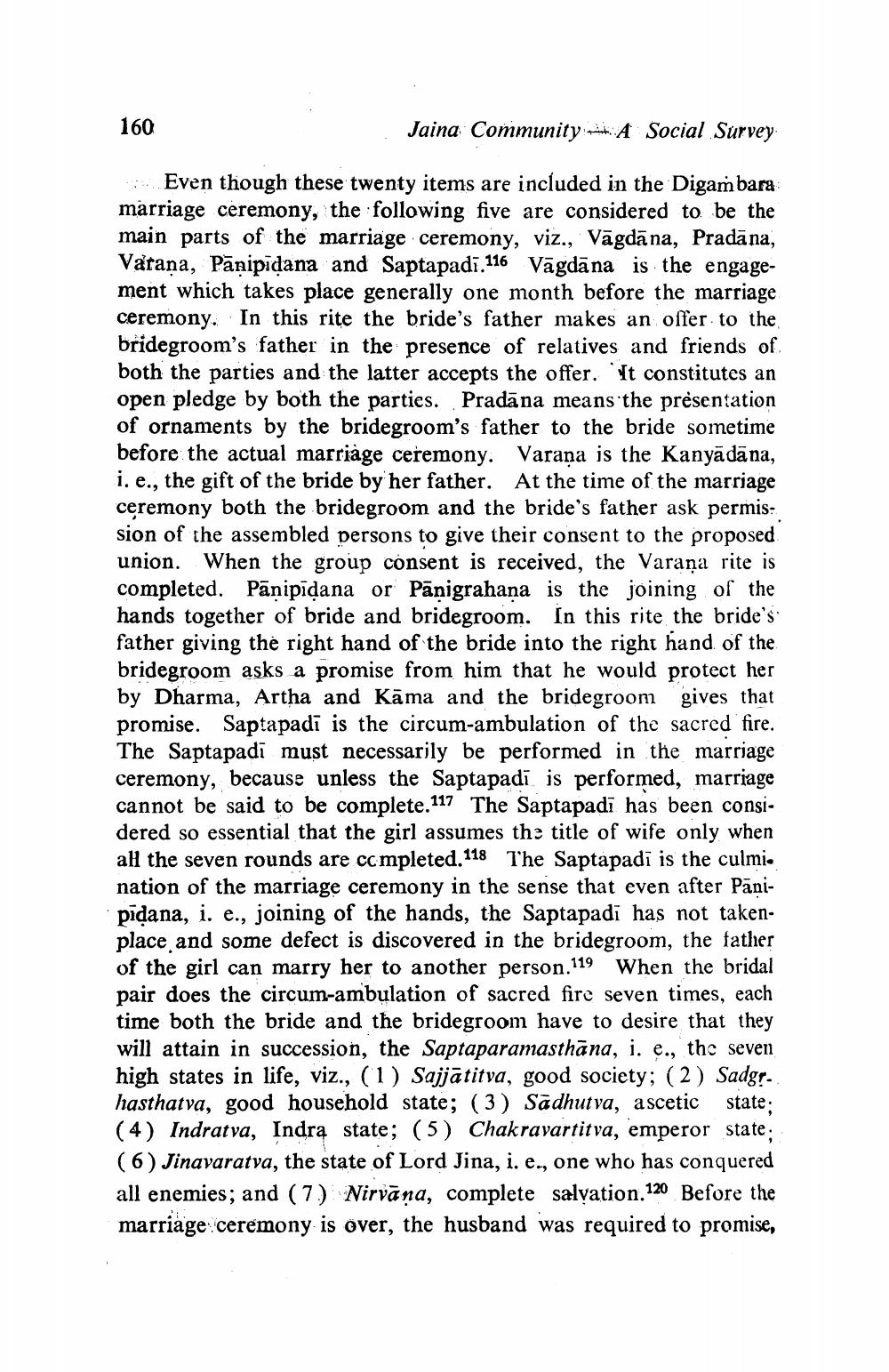________________
160
Jaina Community A Social Survey
Even though these twenty items are included in the Digambara marriage ceremony, the following five are considered to be the main parts of the marriage ceremony, viz., Vāgdāna, Pradāna, Varana, Panipidana and Saptapadi.116 Vagdana is the engagement which takes place generally one month before the marriage ceremony. In this rite the bride's father makes an offer to the bridegroom's father in the presence of relatives and friends of both the parties and the latter accepts the offer. It constitutes an open pledge by both the parties. Pradana means the presentation of ornaments by the bridegroom's father to the bride sometime before the actual marriage ceremony. Varana is the Kanyādāna, i. e., the gift of the bride by her father. At the time of the marriage ceremony both the bridegroom and the bride's father ask permis: sion of the assembled persons to give their consent to the proposed. union. When the group consent is received, the Varana rite is completed. Panipidana or Panigrahana is the joining of the hands together of bride and bridegroom. In this rite the bride's father giving the right hand of the bride into the right hand of the bridegroom asks a promise from him that he would protect her by Dharma, Artha and Kāma and the bridegroom gives that promise. Saptapadi is the circum-ambulation of the sacred fire. The Saptapadi must necessarily be performed in the marriage ceremony, because unless the Saptapadi is performed, marriage cannot be said to be complete.117 The Saptapadi has been considered so essential that the girl assumes the title of wife only when all the seven rounds are completed.118 The Saptapadi is the culmi. nation of the marriage ceremony in the sense that even after Panipiḍana, i. e., joining of the hands, the Saptapadi has not takenplace and some defect is discovered in the bridegroom, the father of the girl can marry her to another person.119 When the bridal pair does the circum-ambulation of sacred fire seven times, each time both the bride and the bridegroom have to desire that they will attain in succession, the Saptaparamasthāna, i. e., the seven high states in life, viz., (1) Sajjātitva, good society; (2) Sadgr hasthatva, good household state; (3) Sadhutva, ascetic state; (4) Indratva, Indra state; (5) Chakravartitva, emperor state; (6) Jinavaratva, the state of Lord Jina, i. e., one who has conquered all enemies; and (7) Nirvana, complete salvation.120 Before the marriage ceremony is over, the husband was required to promise,




